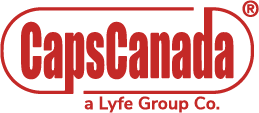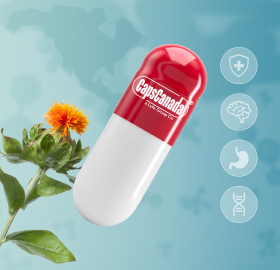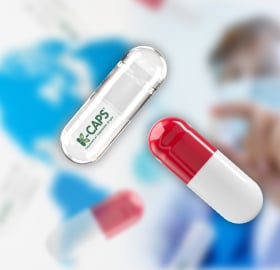In an ever-evolving market, capsule technology is transforming the pharmaceutical and nutraceutical industries. Technological advancements in capsules are revolutionizing product presentation and opening up new opportunities to improve the efficacy, sustainability, and customization of encapsulation solutions.
In this blog, we will explore the emerging trends that are shaping the future of capsule technology. From advances in capsule design and accelerated market growth to innovative solutions in sustainability and release control, these trends are shaping the industry landscape and offering new insights for business.
Fast Growing Market
According to Precedence Research, the global capsule market, valued at USD 2.96 billion in 2022, is expected to reach USD 7.28 billion by 2032. This growth signals new opportunities for the development of innovative capsule technologies. As the market expands, companies are advancing capsule design to meet evolving consumer preferences for healthier, more sustainable, and customizable solutions. This expansion will likely accelerate the adoption of novel materials, smart designs, and more precise release mechanisms, which are at the core of future capsule technologies.
The capsule market can be segmented into different categories with the following projections:
- Empty Capsules: According to Future Markets Insights, the global market is expected to reach USD 2.96 billion by 2024 and grow to USD 6.38 billion by 2034, with a Compound Annual Growth Rate (CAGR) of 8%. North America offers strong growth opportunities due to its established manufacturers.
- Gelatin Capsules: Based on a report made from Future Market Insights, the 2023 revenue was USD 1.83 billion and is projected to reach USD 3.41 billion by 2034, with a CAGR of 5.8%. The U.S. will dominate the North American market, while China will see similar growth in the Asia-Pacific region.
- Vegetarian Capsules: On the report of The Insights Partners, the market is forecast to grow from USD 1.8 billion in 2023 US 3.5 billion by 2031, driven by a CAGR of 8.4%. HPMC (vegetarian) capsules are growing fastest due to demand for healthier, sustainable options, especially in India and Asia-Pacific.
- Liquid-Filled Capsules:According to Future Market Insights, in 2023 the market was valued at USD 1.5 billion, and projected, this market will grow to USD 2.1 billion by 2034, at a modest CAGR of 2.9%. Growth is expected in China, Japan and India.
Technological Innovations in Capsule Design
Innovation in capsule design has evolved rapidly in response to the growing need for more effective and tailored solutions. Some of the most significant advancements include:
Advanced Materials and Customization Options
Recent technological innovations in capsule materials have introduced groundbreaking options for formulation. One notable advancement is the development of enteric polymer-based capsules, which offer enhanced stability in various pH environments, allowing for more precise delivery of active ingredients. Additionally, new advancements in polymer science have led to the creation of biodegradable capsules, While all capsules are designed to naturally dissolve in the body to release their contents, these biodegradable capsules offer an eco-friendly alternative, as they are made from materials that also break down more easily in the environment, reducing their ecological impact.
Another innovative solution is the incorporation of nanotechnology into capsule design, enabling improved bioavailability through the use of nano-sized particles. This allows for a more efficient release of active ingredients, enhancing the overall efficacy of the capsule.
In terms of customization, recent innovations include high-definition printing techniques that allow brands to include detailed logos, text, or even QR codes on the surface of capsules, offering unique branding opportunities and improving product traceability.
Moreover, new technologies are enabling the creation of multi-layered capsules, allowing for the encapsulation of different ingredients in separate layers that dissolve at different rates, enhancing both performance and consumer experience.
Controlled Release Technology
Delayed-release capsules represent a significant advance in encapsulation technology, enabling more precise control over the release of active ingredients. This development is especially beneficial in the nutraceutical industry, where controlling the timing of ingredient release can enhance absorption and efficacy for dietary supplements.
Delayed release technology allows active ingredients to be released at a specific time and place within the digestive tract. This is achieved by designing capsules that respond to specific conditions, such as pH or time, ensuring that the active ingredient is released in the optimal location for absorption. This ability to control release enhances drug efficacy and simplifies the user experience by reducing the need for multiple doses, thus increasing adherence to treatment.
For the pharmaceutical industry, precise control over the release of active ingredients means that consistent and effective dosing can be ensured.
Integration of Natural Colorants and Ecological Options
Demand for sustainability and preferences for natural options have led to incorporating natural colorants in capsule design. While natural colorants may not alter the visual appearance of capsules significantly, they offer a more sustainable alternative to synthetic dyes, aligning with the growing demand for eco-friendly products. In addition, eco-friendly certifications such as Vegan Registration reinforces the brand’s commitment to sustainable practices.
Capsules at the Cutting Edge of Formulation and Research
Modern advances in capsule formulation have enabled the development of capsules with integrated acid-resistant properties, eliminating the need for additional enteric coatings. These innovations allow precise delivery of active ingredients to the right part of the digestive tract, ensuring better protection of sensitive compounds such as probiotics, enzymes and certain vitamins. This technological leap increases bioavailability, and improves the overall efficacy of ingredients, making these capsules more reliable for companies.
At the same time, artificial intelligence (AI) is playing a key role in these advances, optimizing research, development, and production processes. By utilizing AI, manufacturers can optimize capsule formulation, predict ingredient stability, and fine-tune controlled release mechanisms.
Conclusion
Capsule technology is undergoing a rapid transformation, driven by advances in materials, smart designs, and sustainability. Companies that stay ahead of these trends will improve their product offerings, market positioning, and long-term success.
By partnering with an industry leader like CapsCanada, businesses can leverage cutting-edge technology, superior customization, and innovative solutions to meet the evolving demands of the pharmaceutical and nutraceutical markets. Our focus on excellence, customer-centric approach, and advanced research capabilities ensure that companies can overcome challenges and thrive in a competitive global marketplace.
















